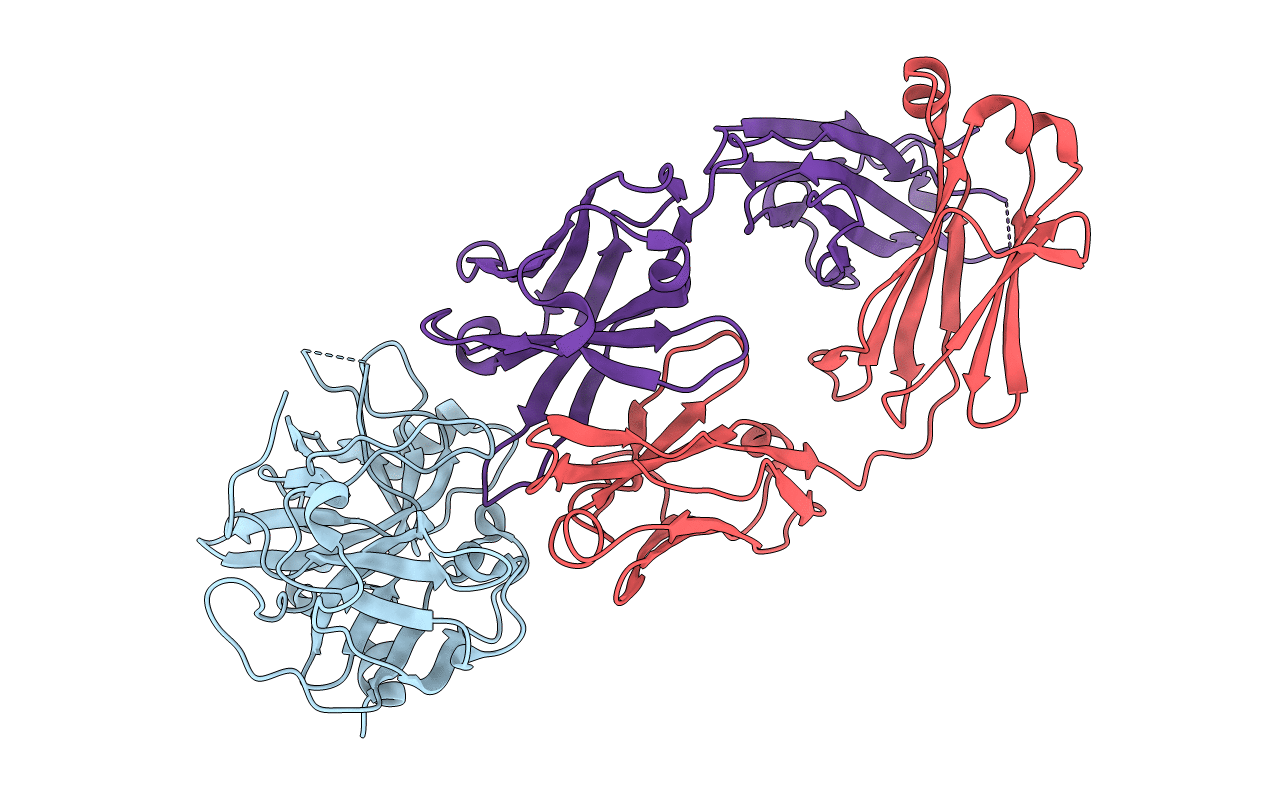
Deposition Date
2019-04-02
Release Date
2019-04-10
Last Version Date
2024-10-23
Entry Detail
PDB ID:
6R8X
Keywords:
Title:
COAGULATION FACTOR XI CATALYTIC DOMAIN IN COMPLEX WITH FAB-PORTION OF MAA868
Biological Source:
Source Organism(s):
Homo sapiens (Taxon ID: 9606)
unidentified (Taxon ID: 32644)
unidentified (Taxon ID: 32644)
Expression System(s):
Method Details:
Experimental Method:
Resolution:
2.04 Å
R-Value Free:
0.28
R-Value Work:
0.22
Space Group:
C 1 2 1


